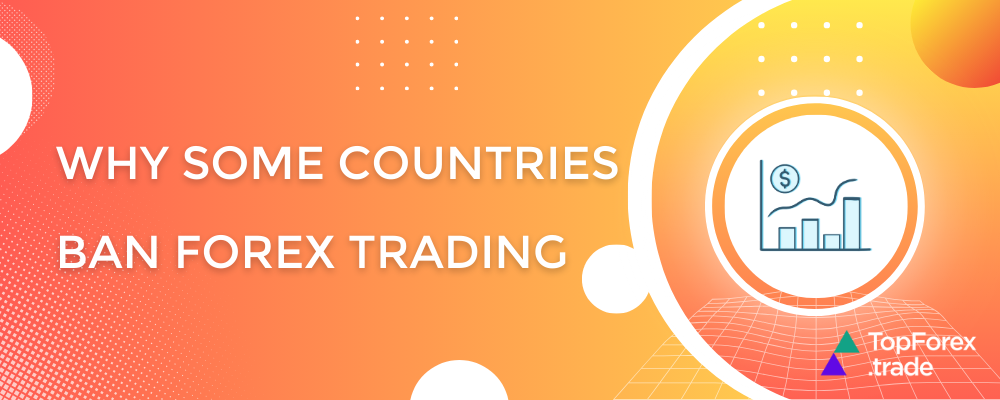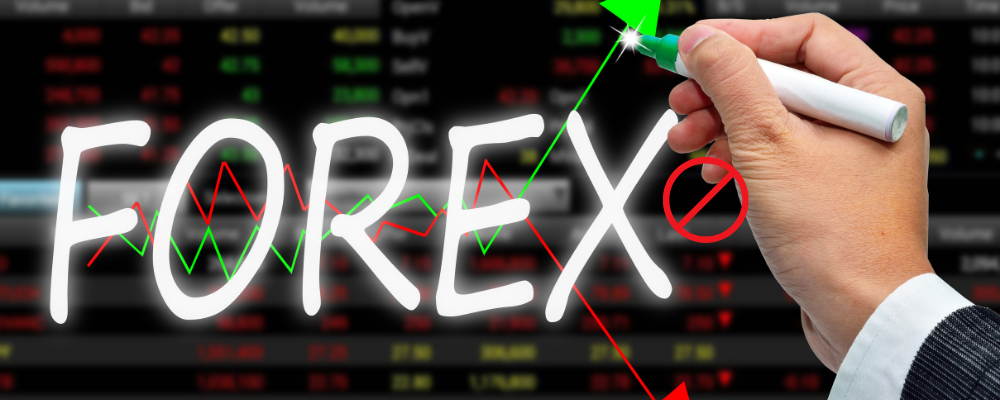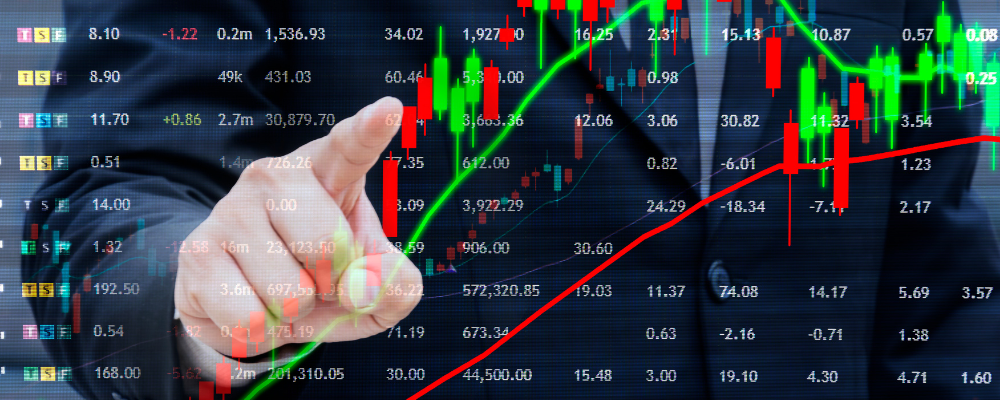The real reasons countries ban Forex trading +5 accessible brokers

Forex trading, with its potential for high returns, attracts millions worldwide. Yet, some countries – like India and China – have strict regulations or outright bans. Why? The reasons range from protecting citizens from financial risks to controlling capital flow and maintaining economic stability. In this article, we explore why certain nations restrict Forex trading and how these policies impact traders and the broader economy.
Why countries ban Forex trading: key reasons

1. Preventing capital flight
Many emerging economies enforce strict foreign exchange controls to prevent large outflows of domestic currency. Unregulated Forex trading can lead to:
- Depreciation of local currency due to excessive speculation
- Loss of foreign reserves as traders move money offshore
- Black market Forex activities undermining official exchange rates
2. Protecting retail investors
Forex trading is highly leveraged and risky, leading to significant losses for inexperienced traders. Countries like Belgium and France have banned Forex advertising and high-leverage trading to prevent:
- Scams by unregulated brokers
- Exploitative marketing targeting inexperienced traders
- Household debt crises from excessive trading losses
3. Maintaining monetary policy control
Central banks (e.g., China’s PBOC, India’s RBI) need to control currency valuation for economic stability. Unregulated Forex trading can:
- Disrupt official exchange rates
- Encourage speculative attacks on the currency (e.g., short-selling during crises)
- Reduce government control over the money supply
Country-specific Forex restrictions

India: strict RBI & SEBI regulations
Check out: Is Forex trading legal in Asia?
- Legal Forex trading: Only allowed on regulated exchanges (NSE, BSE, MCX-SX) for currency derivatives (USD/INR, EUR/INR, etc.).
- Ban on most offshore Forex: Trading with international brokers is restricted.
- Why? RBI fears capital flight, scams, and excessive speculation harming the rupee.
- Workaround: Some traders use international brokers with INR deposits, but this remains a legal gray area.
China: state-controlled Forex market
- Legal Forex trading: Only through state-approved banks (PBOC controls all yuan transactions).
- Ban on offshore brokers: Chinese traders caught using international brokers face account freezes and fines.
- Why? China enforces strict capital controls to prevent yuan devaluation and financial instability.
- Workaround: Traders use underground banking, VPNs, or gray-market brokers, but risks are high.
Other countries with Forex restrictions
| Country | Restrictions | Reasons |
|---|---|---|
| Pakistan | Bans international Forex brokers | Prevent dollar outflows and protect PKR |
| Nigeria | Block Forex broker websites | Stop Naira speculation and fraud |
| Belgium | Bans leveraged Forex trading | Protect retail investors |
| France | Restricts Forex advertising | Reduce risky trading |
| USA | Heavy regulation (FIFO rule, 50:1 leverage cap) | Curb excessive speculation |
What can traders do if Forex is banned?

✅ Legal alternatives
- Trade Forex CFDs (if legal in your country)
- Use regulated futures markets (e.g., NSE in India, CME in the US)
- Invest in Forex ETFs or currency-focused funds
⚠️ Workarounds
- Offshore brokers (but may face withdrawal issues)
- Cryptocurrency-based Forex (decentralized, but volatile)
- Peer-to-peer (P2P) Forex trading (risky due to scams)
Top 5 FX and CFD brokers
If you’re in a country where Forex trading is restricted or heavily regulated, finding a reliable broker can be challenging. Below is a detailed review of the top 5 brokers that may still be accessible, offering strong regulation, flexible deposit options, and reliable trading conditions.
XM Group: best for beginners and high-leverage
🌍 Global access: Accepts traders from many restricted regions (check local laws).
🔒 Regulation: Licensed by CySEC (EU), ASIC (Australia), and IFSC (Belize).
💡 Key features:
- Low minimum deposit ($5) – Great for new traders.
- Leverage up to 1000:1 (on certain accounts).
- No requotes, fast execution – Good for scalping.
- Supports multiple deposit methods (including local options in some countries).
Exness: best for fast withdrawals and Crypto deposits
🌍 Global access: Popular in Africa, Asia, and the Middle East.
🔒 Regulation: Licensed by CySEC, FCA (UK), FSA (Seychelles).
💡 Key features:
- Instant withdrawals (often within seconds).
- Accepts cryptocurrency deposits (helpful in restricted countries).
- Ultra-low spreads (from 0.0 pips on ECN accounts).
- No minimum deposit on some account types.
AvaTrade: best for regulation and long-term traders
🌍 Global access: Available in many regulated and restricted markets.
🔒 Regulation: Licensed by ASIC, FSA (Japan), FSCA (South Africa), EU regulators.
💡 Key features:
- Fixed and floating spreads – Good for risk management.
- Automated trading support (MetaTrader, DupliTrade).
- Strong educational resources – Ideal for beginners.
- Multiple deposit options (including bank transfers and e-wallets).
HF Markets: best for ECN trading and exotic pairs
🌍 Global access: Works in Africa, Latin America, and Asia.
🔒 Regulation: Licensed by CySEC, FCA, FSCA, DFSA (Dubai).
💡 Key features:
- True ECN accounts with tight spreads.
- Supports exotic currency pairs (useful for traders in emerging markets).
- No dealing desk intervention – Fair execution.
- Islamic (swap-free) accounts available.
BlackBull Markets: best for professional traders
🌍 Global access: Available in many countries with Forex restrictions.
🔒 Regulation: Licensed by FMA (New Zealand) & FSA (Seychelles).
💡 Key features:
- True ECN pricing with deep liquidity.
- Institutional-grade execution (good for algo traders).
- Supports MetaTrader 4 and cTrader.
- Competitive commissions for high-volume traders.
Related articles:
Why countries ban Forex trading - FAQ